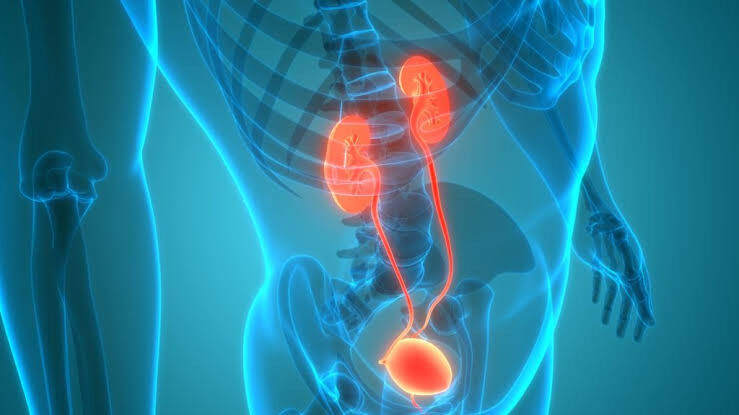Hyderabad: November marks Bladder Health Awareness Month. It is an annual campaign that highlights the importance of early recognition, prevention, and management of bladder-related disorders.
While conversations typically focus on symptoms, infections, or pelvic health, one lesser-known aspect of bladder science is now gaining attention: the bladder has its own circadian rhythm.
This internal 24-hour clock influences how often we urinate, how the bladder stores urine, and how the urge is perceived by the brain.
Understanding this rhythm is crucial because disruptions commonly caused by late-night screen use, irregular sleep schedules, stress, and modern lifestyle habits are emerging as key drivers of nocturia (night-time urination) and urinary urgency.
The Bladder’s Internal Clock: What Science Knows
The body’s circadian rhythm regulates nearly every major organ, including the kidneys and bladder. Together, they maintain a day-night cycle that determines urine production and storage.
Lower urine production at night
The kidneys reduce urine output after dark through increased secretion of vasopressin, an antidiuretic hormone. This allows longer sleep without bathroom interruptions.
Greater bladder capacity during night hours
Bladder muscle receptors become less sensitive, allowing the organ to stretch more during sleep.
“At night, the bladder’s stretch receptors become quieter. This means the same volume of urine feels less urgent compared to daytime,” says Dr. Kavya Raman, Urogynecologist.
The brain filters out minor urges.
Sleep-related neurological pathways help suppress the sensation of urgency.
Neuroscientist Dr. Aftab Mir explains, “The brain deprioritises bladder signals during sleep unless the bladder is truly full. This helps maintain healthy sleep cycles.”
How Modern Habits Disrupt the Bladder Clock
Despite this naturally efficient system, many people experience broken sleep due to unnecessary nighttime urination. Experts attribute a significant part of this to lifestyle habits.
Late-night screen exposure
Blue light delays melatonin, which affects the timing of vasopressin release. Lower vasopressin leads to higher nighttime urine production.
Irregular sleep patterns
Shift workers and people with inconsistent schedules often report poor bladder control at night because their hormone cycles fail to align with natural light–dark cues.
Stress and anxiety
Stress chemicals can increase bladder sensitivity.
Pelvic physiotherapist Sana Vohra says, “Even small volumes of urine can trigger urgency when stress levels are high, especially in the evening.”
Eating or drinking late
Heavy dinners or late hydration push fluid processing into the night period, when the bladder expects minimal workload.
Signs Your Bladder Rhythm Is Off
Doctors say bladder circadian disruption is common but rarely recognised. Key indicators include:
• Waking up more than once to urinate
• Increased evening urgency despite low fluid intake
• Difficulty fully emptying the bladder in the morning
• Sensitive bladder reactions to caffeine or spicy food at night
• Excessive daytime fatigue due to disturbed sleep
Dr. Charith S. Reddy, Consultant Urologist, points out, “Frequent night-time urination is often misunderstood as infection. In many cases, it’s the result of disrupted circadian alignment.”
Why Night-Time Urination Deserves Attention
Health specialists warn that a disrupted bladder rhythm is more than an inconvenience.
Interrupted sleep cycles
Frequent waking affects deep sleep, memory consolidation, and daytime functioning.
Cardiovascular implications
Nocturnal urine production is associated with higher long-term blood pressure.
Mental health impact
Chronic sleep disruption increases stress hormones, which can further worsen bladder sensitivity.
Resetting the Bladder Clock: Recommended Practices
Health experts recommend simple behavioural strategies:
1. Consistent sleep timing
Sleeping and waking at the same time stabilises hormone release patterns.
2. Shift hydration earlier
• Consume most fluids before evening
• Reduce intake 2–3 hours before sleeping
3. Limit caffeine after late afternoon
Caffeine acts as a diuretic and bladder irritant.
4. Avoid late dinners
Late digestion increases fluid movement and stimulates the bladder.
5. Follow a double-voiding method at night
Urinate once an hour before bed, and again immediately before sleeping.
6. Strengthen pelvic floor muscles
Short daily exercises help manage urgency and improve nocturnal bladder control.
Why This Matters During Bladder Health Awareness Month
Bladder Health Awareness Month encourages individuals to address symptoms often dismissed as routine or unimportant. Circadian disruption is one of these overlooked issues. According to doctors, timely lifestyle correction can prevent more serious complications such as overactive bladder, recurrent UTIs, and chronic sleep disturbances.
As Dr. Raman concludes, “Understanding the bladder’s circadian rhythm allows people to improve bladder health without medication. It’s one of the most practical areas for early intervention.
Source link
